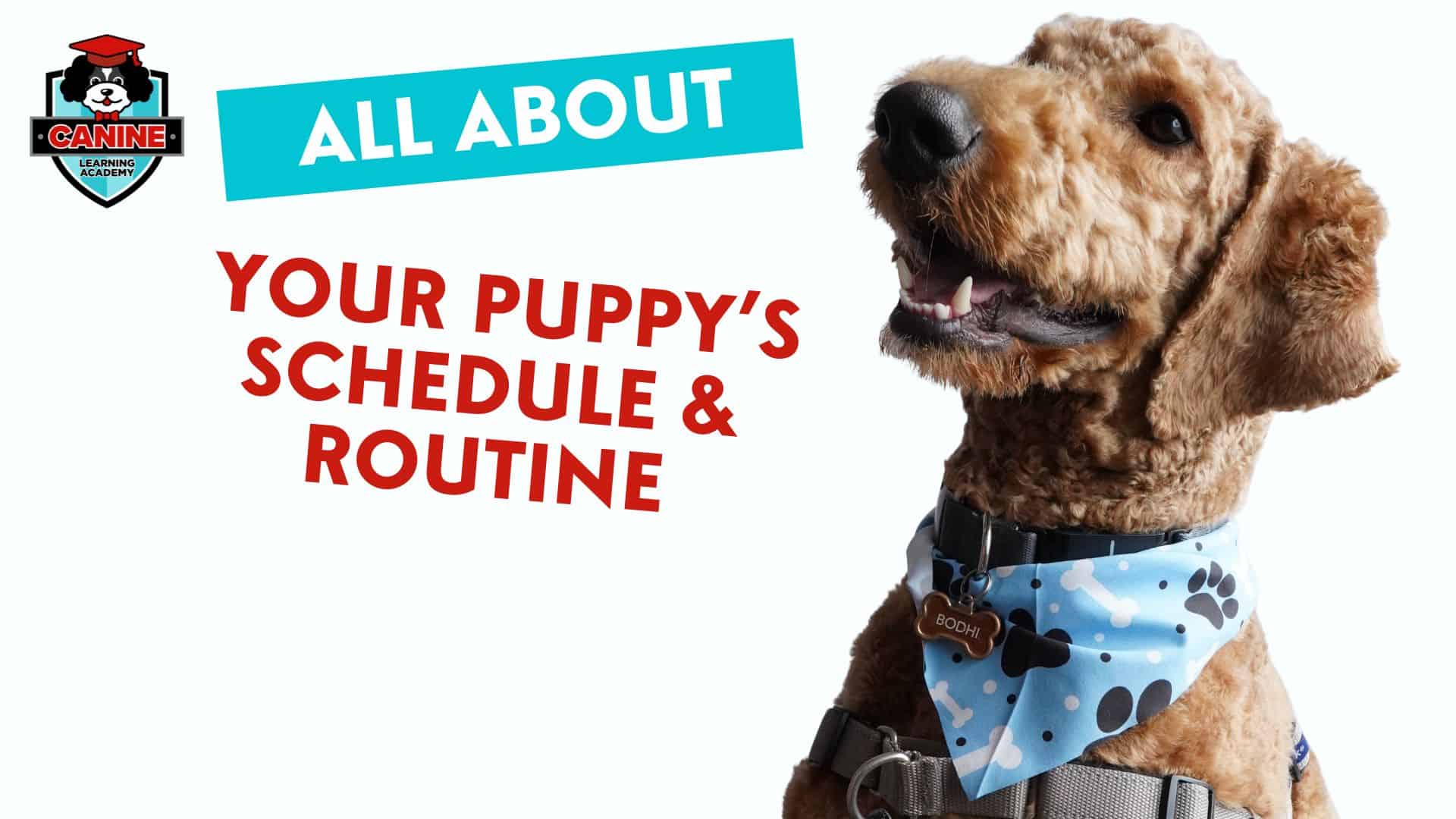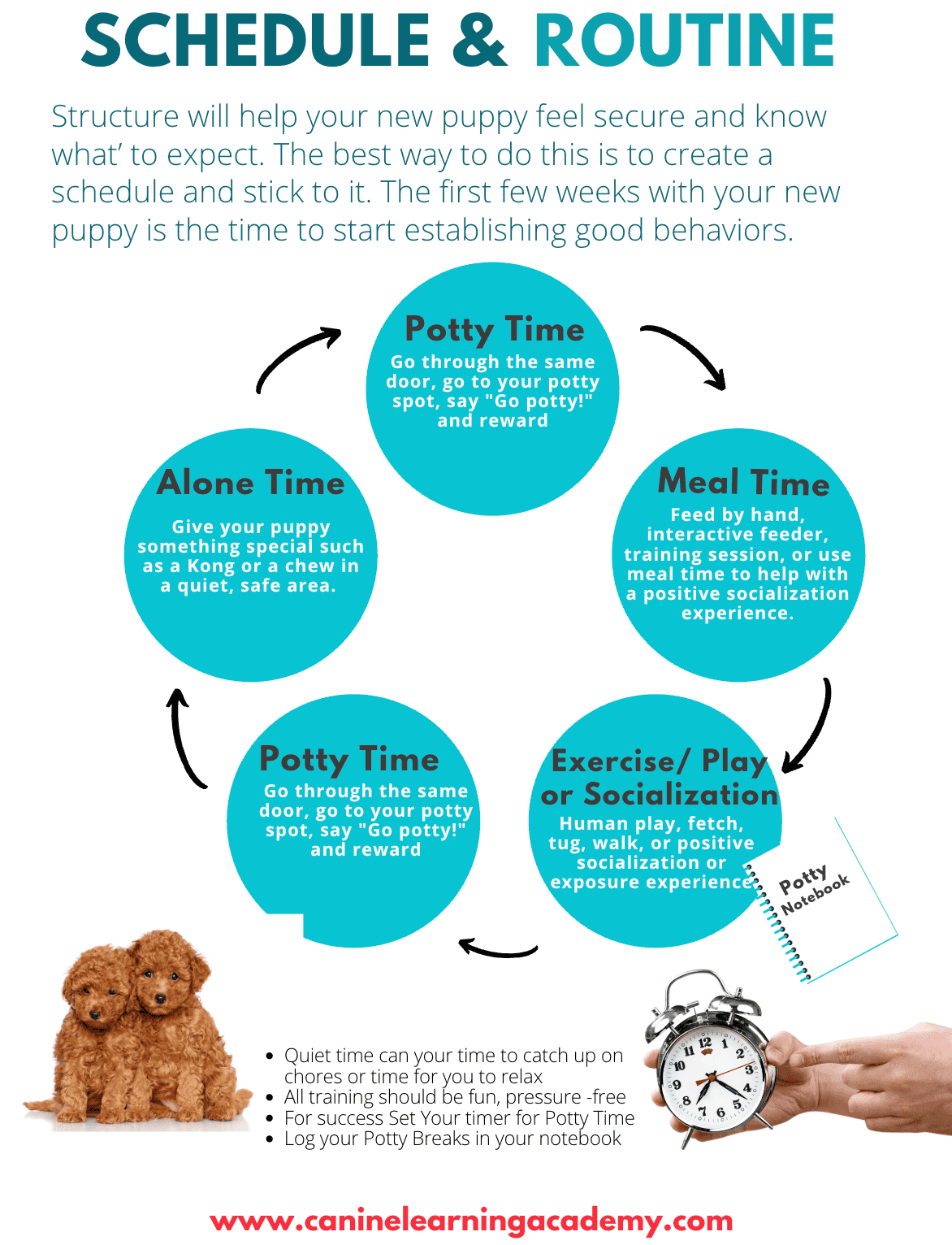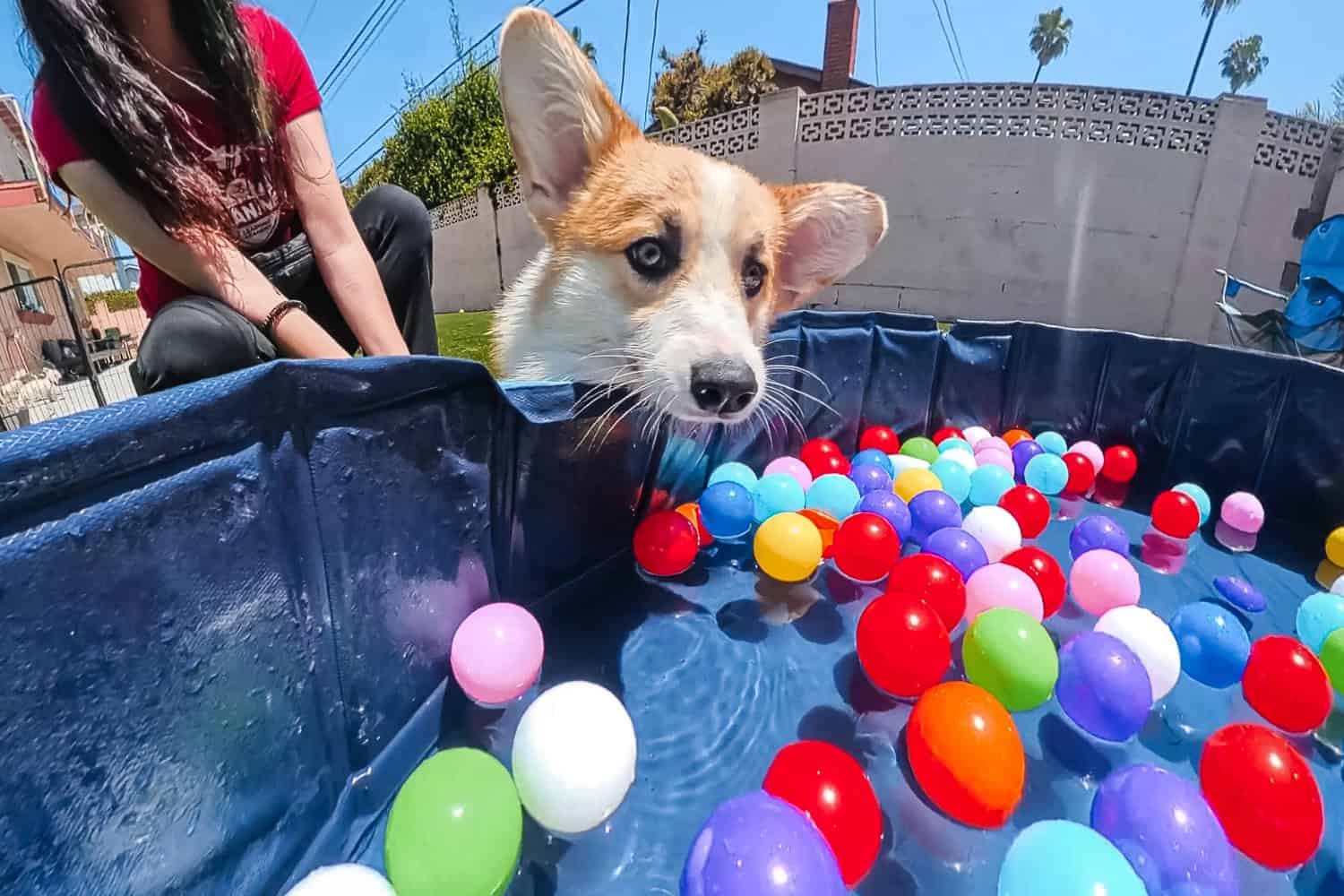What Is Puppy Socialization—and Why Is It So Important?
Early Puppy Socialization Is Essential—not just a nice-to-have, but a critical piece of raising a well-adjusted, confident dog. In fact, most behavior issues seen in adult dogs stem from missed or incomplete socialization during the early weeks of life. If you’re a new puppy parent, it’s important to understand why early puppy socialization is essential to your dog’s lifelong health and happiness. From preventing fear-based behaviors to building emotional resilience, early puppy socialization is essential for setting your pup up for success in our human world.
Puppy socialization isn’t just about playing with other dogs or learning to “sit.” It’s the intentional and positive exposure to a wide variety of people, animals, sights, sounds, textures, and environments during your puppy’s most sensitive developmental period, typically between 3 and 16 weeks of age.
During this time, your puppy’s brain is undergoing rapid neurodevelopment, forming critical associations that shape their emotional and behavioral responses for life. Studies in canine development show that puppies are in what’s known as a “primary socialization window”, when their nervous system is most flexible and adaptable. This means:
Your puppy’s brain is like a sponge — soaking up new information and experiences faster and more deeply than at any other time in their life.

According to the American Veterinary Society of Animal Behavior (AVSAB), this window is when sociability outweighs fear. Puppies are biologically primed to explore and bond with humans, animals, and environments without the instinctive caution and fear that comes later. After this window closes, new experiences are more likely to provoke fear-based responses, which can develop into long-term behavior issues like aggression, reactivity, or anxiety.
In fact, research has shown that:
- Behavioral issues — not illness — are the #1 reason dogs under age three are surrendered to shelters.
- Puppies who are well-socialized are significantly less likely to develop fear, aggression, or anxiety disorders.
- Early exposure also has a positive impact on neurochemical development, promoting resilience, confidence, and adaptability.
Socialization builds a solid emotional foundation. It teaches puppies how to learn, regulate themselves, and feel safe and confident in the world. Think of it as vaccinating your puppy against future fear-based problems — only this is a behavioral vaccine.
When done correctly, early socialization is one of the most powerful things you can do to give your puppy a happy and stable life.
That’s why at Canine Learning Academy, we focus first on positive experiences and emotional intelligence — before we ever ask for a “sit” or a “stay.” Because confident puppies don’t just follow cues — they thrive in new environments, build strong bonds with people, and bounce back from challenges with ease.
Puppy socialization is the intentional, positive exposure to new people, animals, environments, sights, sounds, surfaces, and experiences during a critical developmental window: 3 to 16 weeks of age.
During this time, your puppy’s brain is like a sponge. New experiences shape how they will see the world for the rest of their lives. According to the American Veterinary Society of Animal Behavior (AVSAB), this window is when your puppy is most open to forming positive associations and least likely to respond with fear.
(Read the AVSAB statement on the importance of early socialization- CLICK HERE)
Miss the Window, Miss the Chance

Did You Know? Early Proper Socialization Can Prevent a Lifetime of Problems
Behavioral issues — not illness — are the leading reason dogs under three years old are surrendered to shelters.
According to multiple studies and shelter intake data across the U.S.
Check out the Blog: The Importance Of Puppy Early Socialization Before Vaccinations Are Complete – CLICK HERE
The most common reasons families give up their dogs are behaviors like:
- Reactivity toward other dogs or people
- Separation anxiety
- Aggression or biting
- Fearfulness or shutdown behavior
- Destructive chewing or excessive barking
Most of these issues don’t result from bad dogs or bad owners — they come from a lack of proper early socialization during the puppy’s critical development window.
Here’s why that matters:
Puppies aren’t born knowing how to navigate our human world. Without guided exposure to sights, sounds, people, and other dogs during their early weeks, they may learn to view these things as threats rather than normal parts of life.
Let’s look at a few examples:
- The fearful dog who lunges at strangers?
Often didn’t meet enough friendly people outside their immediate household during their socialization window. - The reactive leash-walker?
May never have been gradually introduced to other dogs while on leash in a positive, neutral way. - The dog who panics when left alone?
Might not have had early experiences learning independence, comfort in a crate, or being away from their people for short periods.
🩺 But What About Vaccines?
Many puppy parents are told not to take their pup out until they’re fully vaccinated — often around 16 weeks of age. But here’s what the American Veterinary Society of Animal Behavior (AVSAB) says:
“The primary and most important time for puppy socialization is the first three months of life. During this time, puppies should be exposed to as many new people, animals, stimuli and environments as can be achieved safely and without causing overstimulation.”
In other words, waiting until your puppy is fully vaccinated may be too late to take advantage of this critical window of opportunity and learning.
That’s why AVSAB and veterinary behaviorists recommend enrolling in puppy socialization classes that prioritize safety:
✅ Indoors only
✅ Professionally cleaned with veterinary-grade disinfectants
✅ Restricted to healthy, age-appropriate puppies
✅ Run by certified positive reinforcement dog trainers who understand body language and fear prevention
✅ Instructors and classes that are committed to kind, effective, positive reinforcement dog training methods. Learn more about our training methods: CLICK HERE
At Canine Learning Academy, our Puppy Kindergarten Group Class is designed with all of this in mind. We follow AVSAB guidelines, require proof of vet-administered vaccinations, and maintain an ultra-clean and controlled environment, allowing your puppy to learn, grow, and socialize safely without unnecessary health risks.
The Puppy Kindergarten group class curriculum is based on a combination of highly regarded resources, including the Puppy Start Right program, the AKC S.T.A.R. Puppy Program, and our experience working with new puppies. Every trainer on the Canine Learning Academy team is a puppy training expert with extensive experience in managing puppy play, troubleshooting behavioral issues, communicating effectively with new pet parents, and teaching new skills effectively.
When it comes to raising a confident, well-adjusted dog, prevention through early socialization is far more effective—and kinder—than using punishment-based learning later on.
Safe, Vet-Approved Puppy Socialization — the Canine Learning Academy Way
At Canine Learning Academy, we take safety and fun seriously. Safety First — Designed Specifically for Puppies Under 16 Weeks
At Canine Learning Academy, our Puppy Kindergarten classes are intentionally created for puppies under 16 weeks of age, aligning with the official recommendations of the American Veterinary Society of Animal Behavior (AVSAB). This is the critical period when puppies are most receptive to positive experiences and least likely to develop fear-based behaviors.
To keep our learning environment both safe and developmentally enriching, we follow strict health and cleanliness protocols:
✅ Puppies must be home from the breeder for at least 7 days with no signs of illness.
✅ Unvaccinated puppies must be carried into the facility, and will have their own training space, mat, water bowl and potty station
✅ Proof of first-round vaccinations administered by a veterinarian is required before attending class.
✅ Our training space, equipment, and enrichment props are thoroughly disinfected and sanitized before classes begin using a veterinary-grade disinfection solution (Kenesol, Rescue, or other) —the same level of disinfection trusted by animal hospitals.
✅ We ask that all humans in the puppy class disinfect their shoes before stepping into the classroom to minimize outside germs.
Our program is vet-approved, and we’re proud to have local veterinarians not only refer their clients but also attend our classes with their own puppies.
We encourage you to share our protocols and socialization goals with your vet if you have any concerns. Many professionals agree: it’s safer to socialize in a controlled, clean setting than to wait and risk behavioral issues later.
Because at Canine Learning Academy, we don’t just train puppies—we shape confident, resilient companions for life.
Here’s what makes our Puppy Kindergarten Group Class the GOLD Standard of Puppy Classes

When it comes to raising a happy, well-adjusted dog, the first few months of life matter more than most pet parents realize. At Canine Learning Academy, we don’t just teach the basics—we lay the foundation for a lifetime of good behavior, emotional resilience, and a strong bond between you and your pup.
Our Puppy Kindergarten Group Class is designed specifically for puppies under 16 weeks of age and goes far beyond teaching simple cues like “sit” and “stay.” It’s a developmental experience rooted in science, guided by expert puppy trainers, and packed with enrichment to nurture your puppy’s social, emotional, and physical growth.
This isn’t just a class—it’s your puppy’s very first classroom, where they’ll safely learn to navigate the big, exciting world around them. Here’s why pet parents and veterinarians alike call this the gold standard in early puppy education:
- Open Enrollment: Start as early as 8 weeks—no need to wait for a new session
- Safe Off-Leash Play in a clean, controlled environment with supportive flooring
- Positive Exposure to Everyday Noises & Objects like vacuums, umbrellas, wheelchairs, and skateboards
- Gentle Handling Practice for vet and groomer visits
- Foundational Training: Sit, leash walking, recall, focus
- Prevention of Common Behavior Problems like jumping, running away, barking, chewing or biting
- Classes are developed by KPA Certified Dog Trainer Yo Armendariz (learn more about our founder)
- Cleaned with Veterinary-Grade Disinfectant Before Classes Begin
Would you like to learn more about our group classes? Click Here
Tips So You Can Start at Home with Your Puppy

Start in your Home!
Even before your puppy joins class, you can start laying the groundwork for a confident, resilient dog.
Here’s how to begin safely and effectively:
1. New People = Treat Party
Invite a variety of friendly people over—men, women, kids, people wearing hats or sunglasses. Ask them to calmly toss treats without reaching over or crowding your puppy. Let your pup approach on their own terms.
🔁 Repeat with different people every week to build a wide social experience.
Goal: Your puppy learns that new humans = good things happen!
2. Sound Desensitization
Start by playing low-volume recordings of potentially scary noises: thunderstorms, fireworks, sirens, babies crying, skateboards, vacuum cleaners.
Do this during play or meals so your puppy associates the sounds with safety and fun. Gradually increase the volume over time.
📱 You can find puppy sound playlists on YouTube or Spotify!
Goal: Your puppy stays relaxed and confident when they hear real-life sounds.
3. Touch Tolerance & Handling Practice
Gently touch your puppy’s ears, tail, paws, mouth, and belly daily while they’re calm or sleepy. Pair each touch with a treat or praise.
Get them used to common grooming tools like brushes, nail clippers, or a toothbrush (even if you’re not using them yet).
🧼 This also prepares them for vet visits and grooming appointments.
Goal: Your puppy accepts being handled without fear or fuss.
4. Explore New Surfaces
Let your puppy walk on different textures like:
- Carpet
- Tile
- Wood
- Grass
- Gravel
- Rubber mats
- Crinkly tarps or wobbly balance boards
- Create a mini “confidence course” at home by placing unusual surfaces in a safe play zone. Use treats and toys to encourage your pet’s natural exploration.
Goal: Your puppy gains confidence walking on and interacting with unfamiliar environments.
5. Positive Firsts Only
Always introduce new experiences with patience and positivity. Whether it’s the first bath, a stroller passing by, or the sound of a garbage truck—let your puppy observe from a distance and reward calm behavior.
Never force interactions. Watch your puppy’s body language:
- If they seem curious—reward and let them explore!
- If they hesitate—pause, encourage gently, and try again later.
Goal: Your puppy builds positive associations with novelty and doesn’t learn to fear the unknown.
Never force. Let your puppy explore at their own pace and always pair new things with praise and treats.
What Sets Our Puppy Kindergarten Group Class Apart
Unlike crowded pet store classes or unsafe meet-ups, our Puppy Kindergarten is specifically designed for pups under 16 weeks old. It’s designed to make the most of your puppy’s critical socialization window—in our facility, a place that’s clean, safe, temperature-controlled, and full of expert support.
Many local veterinarians trust us with their puppies and even attend our classes themselves. We are pleased to have a partnership with Sunstone Animal Hospital, an excellent veterinary practice in Huntington Beach, which aligns with our training approach.
Start Now — Because Your Puppy’s Confidence Can’t Wait!
Every day counts during your puppy’s critical early development. Don’t wait until behavior problems show up—prevent them before they begin.
🟢 Learn more or Enroll in Puppy Kindergarten Today
🟢 First Class is FREE (use code FIRSTCLASSFREE)
🟢 Puppy Kindergarten Group Class is Open to Puppies 8–14 Weeks
Schedule a Free Discovery Call to speak with a Certified Dog Trainer
Let’s discuss your puppy, your goals, and how we can help you raise a calm and confident canine companion. To get started, we would love to schedule a Discovery Call, where we can learn more about you and your dog, including your dog’s background and the challenges you’re facing. We can offer you some advice and suggestions to try right away while we determine a treatment plan.
We believe so strongly in the importance of early socialization that your first class is FREE with the code FIRSTCLASSFREE!
To move forward, book your Discovery Call now! You can send a text message to Yo directly on our company cell phone at (949) 849-3885 to arrange a time that is convenient for both of you.
Classes are held at our clean, vet-approved facility, 18582 Beach Blvd, Suite 1, Huntington Beach, Ca.

Download your free guide today!
In our free guide, “The Complete Guide and Checklist,” we cover everything you need to know to set your puppy up for success, keep it safe, and prevent it from shredding furniture, inappropriately biting, or consuming any toxic substances.
Get Access to Your Free Guide




